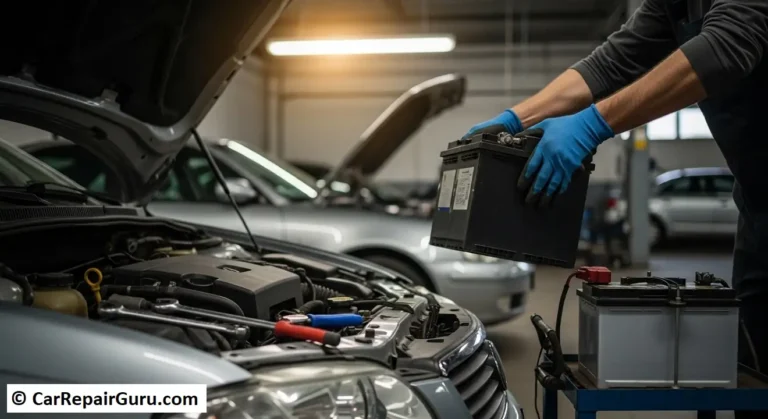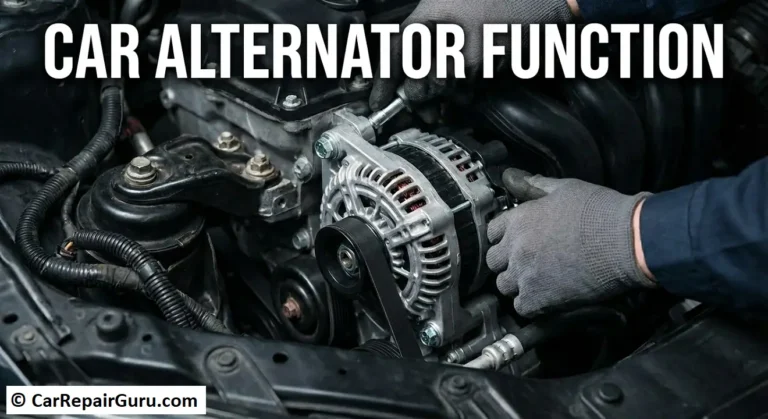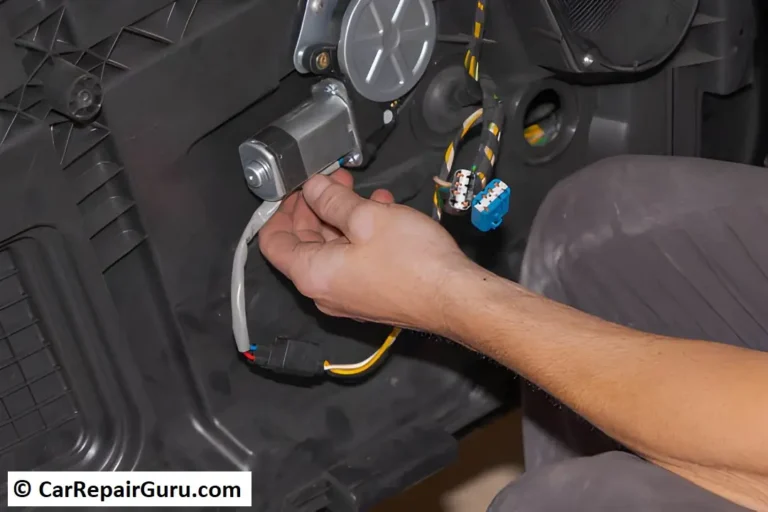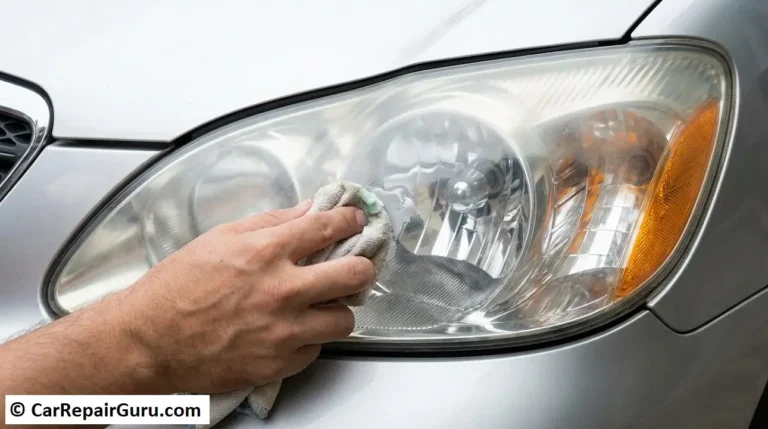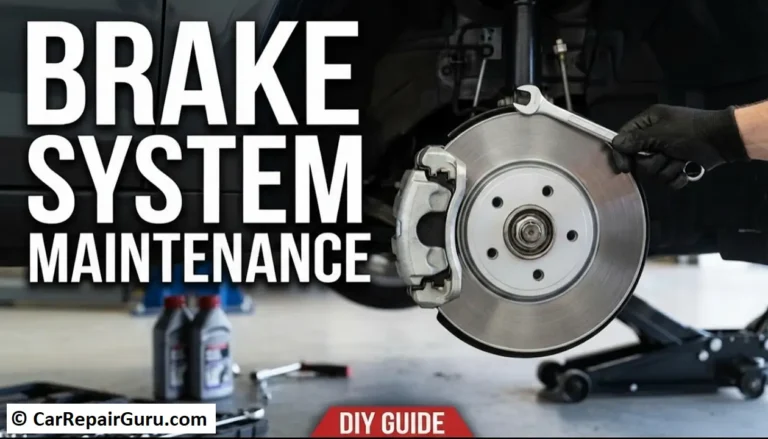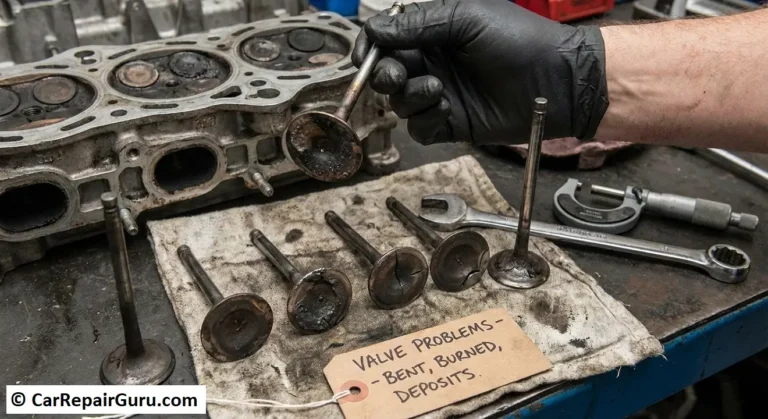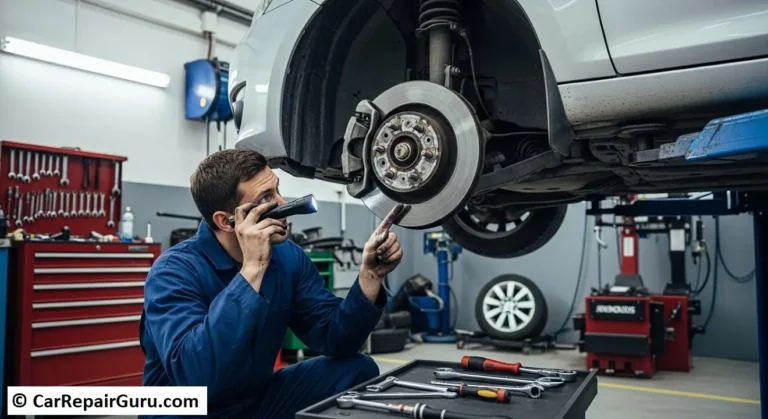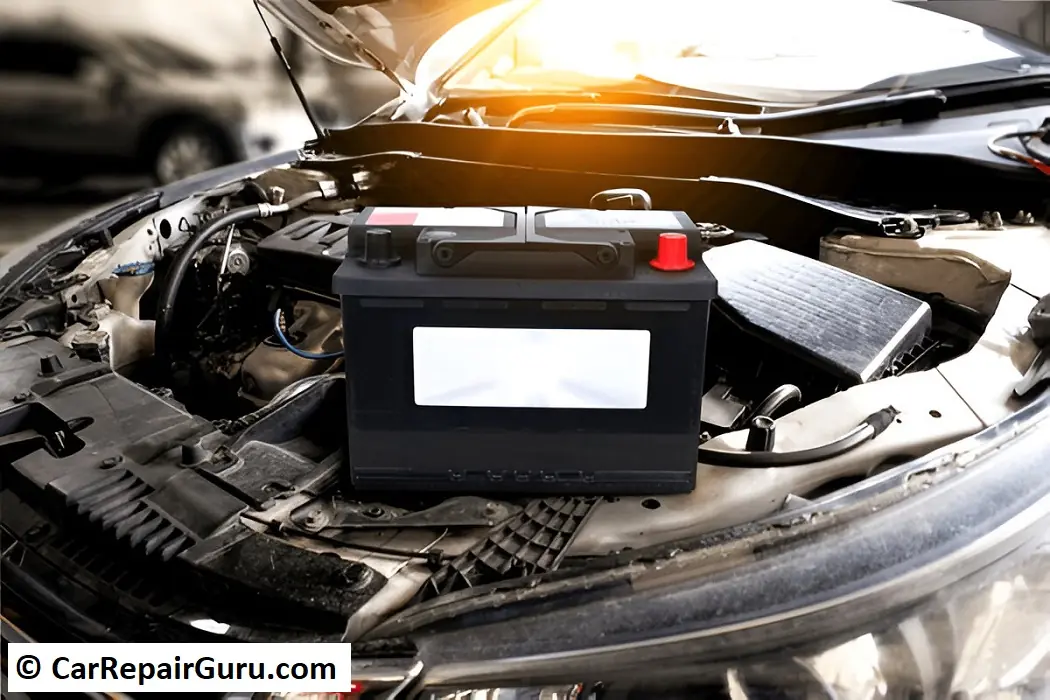
Your car battery is the heart of your vehicle’s electrical system, powering everything from starting the engine to running the lights and radio. However, like any component, it has a limited lifespan, typically lasting 3–5 years. By taking the right steps to care for your car battery, you can significantly extend its life, save money on replacements, and avoid the inconvenience of being stranded with a dead battery.
In this guide, we’ll explore the best practices to extend car battery life and ensure optimal performance. From understanding how your car battery works to implementing smart maintenance routines, this article provides actionable advice you can start using today. Whether you’re a new car owner or a seasoned driver, these tips will help you keep your battery running smoothly and efficiently.
Let’s dive into the essential tips for maintaining and enhancing the longevity of your car battery.
- How Does a Car Battery Work?
- Top 10 Tips to Extend Car Battery Life
- 1. Regular Maintenance
- 2. Minimize Short Trips
- 3. Check Electrolyte Levels
- 4. Avoid Extreme Temperatures
- 5. Turn Off Accessories
- 6. Drive Regularly
- 7. Use a Battery Maintainer
- 8. Secure the Battery
- 9. Inspect Charging System
- 10. Replace When Needed
- Common Mistakes That Shorten Battery Life
- Conclusion
- FAQs About Car Battery Care
How Does a Car Battery Work?
A car battery is the powerhouse of your vehicle’s electrical system. It stores chemical energy and converts it into electrical energy to power the car’s components. The battery’s main role is to provide the initial surge of electricity needed to start the engine. Once the engine is running, the alternator takes over, recharging the battery and supplying power to other electrical systems.
The typical car battery is a lead-acid type, consisting of six cells. Each cell produces about 2 volts of electricity, resulting in a total output of 12 volts. Inside the battery, a chemical reaction occurs between lead plates and an electrolyte solution (a mixture of sulfuric acid and water), generating the energy required to start your car and keep electrical devices functioning.
Regular checks are essential to extend car battery life and maintain optimal performance. Corrosion on terminals, low electrolyte levels, or a weak charge can compromise the battery’s efficiency. Simple maintenance tasks like cleaning terminals, ensuring a secure connection, and checking fluid levels can prevent issues and prolong its lifespan.
Understanding your battery’s role and keeping it in good health ensures reliable performance and reduces the risk of unexpected breakdowns.
Top 10 Tips to Extend Car Battery Life

1. Regular Maintenance
One of the simplest ways to extend car battery life is through regular maintenance. Over time, battery terminals can accumulate corrosion—a white or bluish powder that interrupts the electrical flow. Clean the terminals using a mixture of baking soda and water and a soft brush. Once clean, apply a thin layer of petroleum jelly or terminal protectant spray to prevent future corrosion.
Additionally, inspect the cables and clamps for tightness and wear. Loose or damaged connections can cause voltage drops, leading to poor battery performance. By including terminal cleaning as part of your routine maintenance, you can ensure reliable operation and a longer lifespan for your car battery.
2. Minimize Short Trips
Frequent short trips can take a toll on your car battery. Starting the engine requires a significant amount of power, and short drives don’t allow the alternator enough time to recharge the battery fully. Over time, this habit can lead to a drained battery and a shorter lifespan.
Whenever possible, combine errands into a single trip or take your car for a longer drive periodically. This helps the alternator replenish the battery’s charge and keeps it functioning optimally. Avoiding short trips is a small change that can make a big difference in preserving battery life.
3. Check Electrolyte Levels
The electrolyte solution in your car battery plays a crucial role in its performance. Over time, the water in the solution can evaporate, especially in hot climates, lowering the levels. Check the electrolyte levels regularly by removing the battery caps (if applicable).
If levels are low, add distilled water carefully—never tap water, as it can contain impurities that harm the battery. Proper electrolyte levels ensure the chemical reactions within the battery occur efficiently, helping to maintain its charge and prolong its lifespan.
4. Avoid Extreme Temperatures
Both hot and cold temperatures can negatively affect your car battery. Extreme heat can cause the electrolyte to evaporate, reducing the battery’s ability to hold a charge. Cold weather, on the other hand, slows down the chemical reactions within the battery, reducing its efficiency.
To protect your battery in winter, consider using an insulation wrap or thermal blanket. These affordable accessories help maintain a stable temperature, ensuring optimal performance in extreme conditions. In hot weather, park in shaded areas or garages to minimize heat exposure. Temperature management is essential for extending your battery’s life.
5. Turn Off Accessories
Leaving lights, radio, or other accessories on after turning off the engine can quickly drain your car battery. Always double-check that all electrical devices are off before exiting the vehicle.
Additionally, unplug chargers or other devices that draw power even when the engine is off. Small habits like these can prevent unnecessary battery drain and ensure there’s enough charge when you need it most.
6. Drive Regularly
Letting your car sit idle for long periods can lead to a drained battery. Batteries naturally lose charge over time, and without regular use, they may not have the chance to recharge through the alternator.
If you don’t drive often, consider starting your car and letting it run for about 15 minutes every few days. Better yet, take it for a short drive. This keeps the battery charged and prevents sulfation—a buildup on the plates that reduces capacity. Regular use is a simple way to extend the life of your car battery.
7. Use a Battery Maintainer
If your car is parked for extended periods, invest in a battery maintainer, also known as a trickle charger. This device keeps the battery charged without overloading it, making it ideal for vehicles in storage or infrequent use.
Battery maintainers are easy to use and can prevent deep discharges, which significantly reduce a battery’s lifespan. They’re especially useful during winter when cold weather drains battery power faster. By keeping the battery at optimal charge levels, a maintainer ensures long-term health and reliability.
8. Secure the Battery
A loose battery can vibrate excessively while driving, causing internal damage and reducing its lifespan. Periodically check that the battery is securely fastened in its tray.
Inspect the mounting brackets for tightness and signs of wear. Ensuring your battery stays in place prevents physical damage and extends its life.
9. Inspect Charging System
A faulty charging system can lead to undercharging or overcharging, both of which harm the battery. Have your alternator and voltage regulator checked regularly to ensure they’re functioning correctly.
An alternator that fails to supply enough charge leaves your battery struggling to power the vehicle. Conversely, overcharging can cause overheating and damage. Regular inspections help you catch these issues early, keeping your battery in good health.
10. Replace When Needed
Even with proper care, car batteries eventually wear out. Signs of a failing battery include slow engine starts, dim headlights, and frequent jump-starts.
If your battery is over three years old, have it tested annually to assess its condition. Replacing a failing battery before it dies can save you from inconvenient breakdowns. Opt for a high-quality replacement to ensure long-term performance.
Common Mistakes That Shorten Battery Life
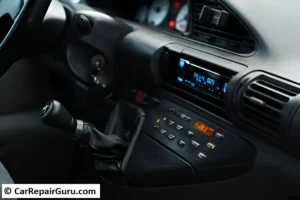
Even with good intentions, certain habits can inadvertently shorten your car battery’s lifespan. Understanding and avoiding these mistakes can significantly improve its longevity.
1. Overcharging
Overcharging is a common issue caused by malfunctioning chargers or alternators. It generates excess heat, which can damage the battery’s internal components and lead to faster degradation. Modern batteries are designed to work with precise voltage levels, so it’s vital to use a proper charger and periodically test the alternator’s output to avoid this issue.
2. Leaving Accessories On
Forgetting to turn off lights, radios, or other accessories after shutting off the engine is a surefire way to drain your battery. Even small devices, such as a phone charger left plugged in, can contribute to parasitic drain over time. Make it a habit to double-check that all accessories are off before leaving your vehicle.
3. Neglecting Regular Maintenance
Failing to perform routine checks, such as cleaning corroded terminals or monitoring electrolyte levels, can drastically reduce your battery’s efficiency. Corrosion can block the electrical connection, while low electrolyte levels can damage the battery’s cells. Regular maintenance keeps the battery in good condition and ensures it performs reliably.
4. Exposing the Battery to Extreme Temperatures
Prolonged exposure to extreme heat or cold can harm your car battery. Hot temperatures can evaporate the electrolyte, while cold temperatures can freeze it, especially if the battery is not fully charged. Protecting your battery with insulation wraps in winter or parking in shaded areas during summer can prevent such damage.
By avoiding these common mistakes, you can help maximize your car battery’s performance and extend its lifespan. Simple precautions and maintenance go a long way toward saving you time, money, and the inconvenience of a dead battery.
Conclusion
Your car battery plays a vital role in ensuring a reliable and efficient driving experience. By adopting good habits and practicing regular maintenance, you can significantly extend its lifespan and avoid unexpected breakdowns. Simple steps like cleaning terminals, minimizing short trips, monitoring electrolyte levels, and protecting the battery from extreme temperatures go a long way in preserving its performance.
Avoiding common mistakes, such as overcharging or leaving accessories on, further ensures your battery remains in top condition. Remember, a well-maintained battery not only saves you money but also contributes to a smoother, stress-free driving experience.
Take control of your car battery’s health starting today. Implement these tips to maximize its performance and longevity, ensuring your vehicle is always ready to go when you need it most. Small, consistent efforts can make a big difference in the long run!
FAQs About Car Battery Care
Q1: How often should I check my car battery?
A: It’s recommended to inspect your car battery every three months or before embarking on long trips. During checks, clean the terminals to remove corrosion and ensure electrolyte levels are adequate.
Q2: What is the average lifespan of a car battery?
A: On average, a car battery lasts between 3 to 5 years, depending on factors such as climate, driving habits, and maintenance. Regular care can help maximize this lifespan.
Q3: How do I know my car battery needs replacing?
A: Signs of a failing battery include slow engine starts, dim headlights, frequent need for jump-starts, and warning lights on the dashboard. Have your battery tested if you notice these issues.
Q4: Can extreme weather affect battery life?
A: Yes, extreme temperatures impact battery performance. Hot weather can cause electrolyte evaporation, while cold temperatures reduce the battery’s ability to deliver power. Insulation wraps and parking in shaded or sheltered areas can mitigate these effects.
Q5: Is it safe to jump-start a dead battery?
A: Yes, but it must be done correctly to avoid damage. Use high-quality jumper cables and ensure the vehicles are compatible. Always refer to your car’s manual for instructions. After jump-starting, allow the engine to run for at least 20 minutes to recharge the battery.
